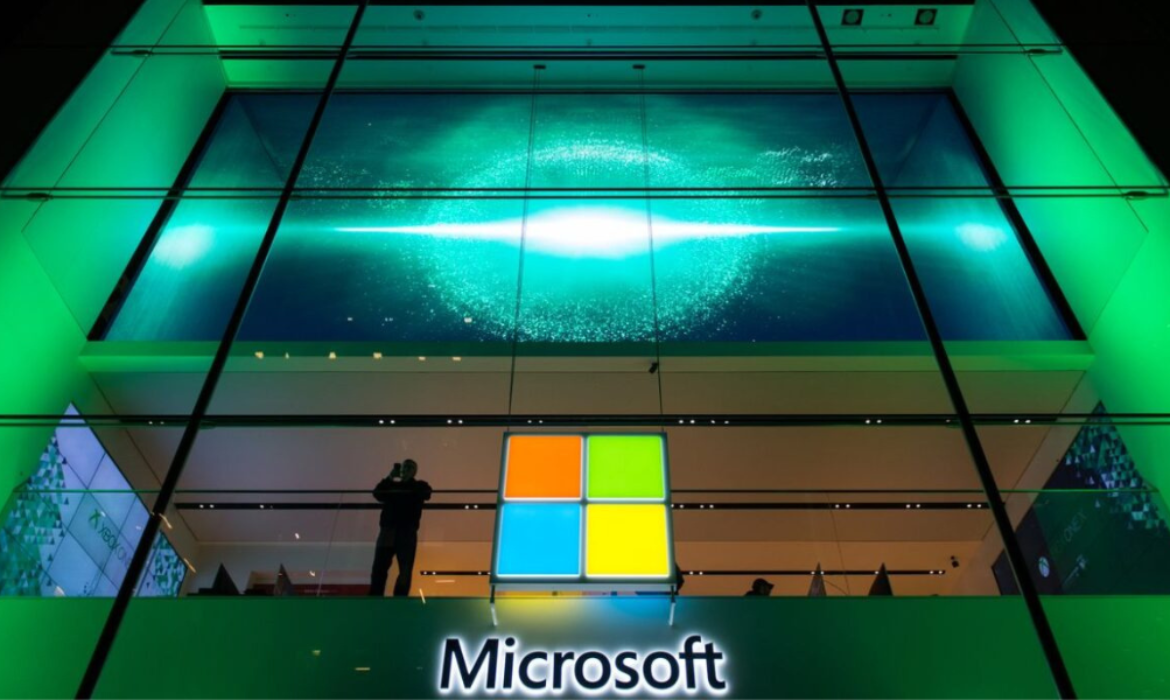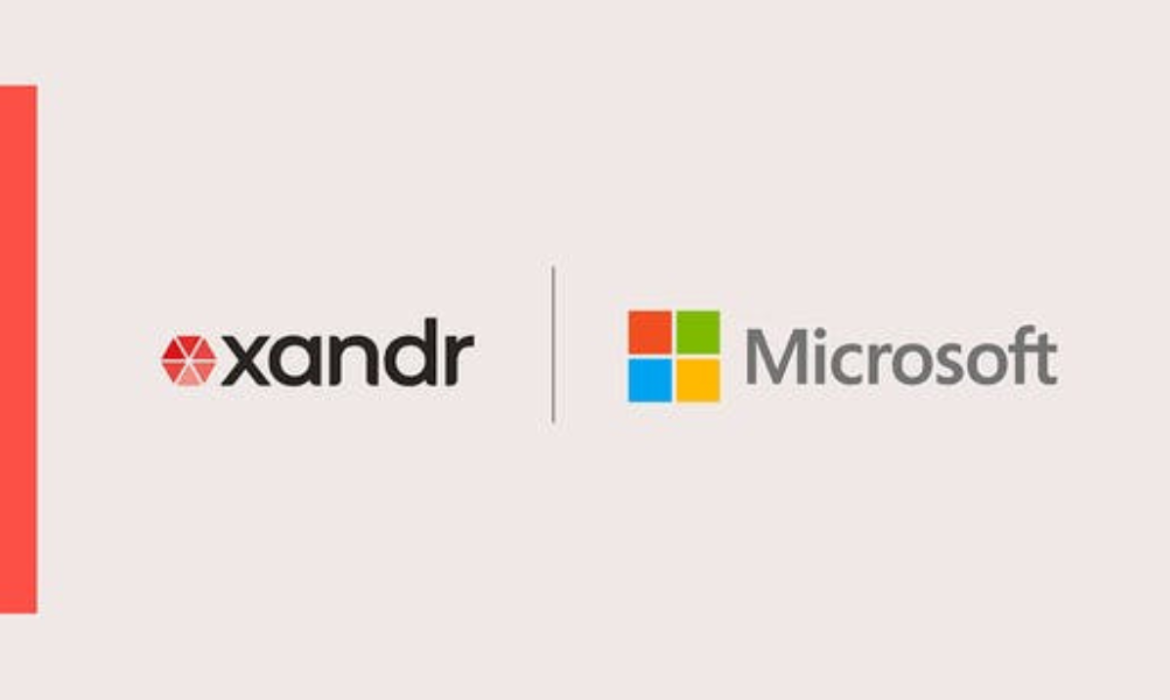Is Microsoft Reinventing Its Ad Business With Massive Acquisitions?
Microsoft has a sizeable ad business. In the latest earnings call, the company reported the advertising revenues “surpassed $10 billion, ex-TAC ”. The company believes its vertical will grow in the mid-to-high teens.
“Across Bing and Edge, we are creating differentiated, high value experiences for consumers and advertisers in key verticals, including shopping. More broadly, we are expanding our opportunity in advertising.”
The company has taken center stage with its recent notable acquisitions -gaming giant Activision Blizzard and a leading adtech company Xandr. Recently, Nadella said,
“And with our acquisition of Xandr, we will bring to market new advertising solutions that combine our deep audience understanding and customer base with Xandr’s large-scale data-driven platforms.”
Does all this mean the stirring of a sleeping giant in the ad industry? Microsoft has access to an extremely powerful first-party data operation based on subscriptions. Even though Bing, Edge, and MSN may seem passe today. However, Microsoft still has a huge audience which includes Xbox, Game Pass, LinkedIn, and Outlook.
Interesting Read: 5 Ad Industry Trends That Are Likely To Unveil in 2022!
All The Ingredients Of The Ad Business
Despite the size and stellar performance of its ad business, Microsoft has not really been seen as a true rival for Google and Facebook in the advertising sphere. It’s been some time since Amazon officially dispensed Microsoft from the “Big 3” of digital media, joining Google and Facebook among the world’s largest digital advertising companies.
Still, analysts do not seem to have discounted Microsoft’s ad dominance. As GroupM Business Intelligence Global President outlined in a report, “We estimate advertising to be a $15 billion business in 2021.” These figures are before Xandr’s acquisition; making Microsoft the fourth largest player outside of China in ad sales. Weiser attributes this to a surge in overall ad demand, as well as LinkedIn‘s success in recruiting advertising following the “Great Resignation.”
Ad offerings from Microsoft currently include ads on its search engine Bing, placements on its O&O networks, as well as its Microsoft Audience Network, a programmatic network that places native ad units on properties like CBS Sports and Fox Business. This is in addition to its retail media offering PromoteIQ.
There is still plenty of opportunities for Microsoft to enhance its ad revenue even beyond what it is currently doing. For its advertising business, the company has “bold ambitions”, especially around data, audiences, and international expansion.
Interesting Read: A Panoramic Perspective Of Amazon’s Advertising Business!
Xandr- A crucial ingredient
The acquisition of Xandr (formerly App Nexus) will not only solidify Microsoft’s position as a prominent ad tech player but also develop capabilities in the demand-side and supply-side of advertising.
On the supply side, it helps them monetize their data and ID better because in the past, they didn’t sell that outside of their own businesses but now they can do so with Xandr. On the demand side, it helps them secure more budget.
Xandr and Microsoft had a close relationship before their merger, which may have led to a much better outcome. Recent acquisitions have the potential to awaken the sleeping giant. In contrast to before, Microsoft has more content, data, and now technology. All walled gardens possess this very powerful characteristic. So, is there a new walled garden in making? Experts interpret this acquisition as Microsoft’s bid to build a walled garden with a buying platform, unique inventory, persistent ID layer, and proprietary data.
Activision Blizzard- an advantage to ad-funded gaming
Xandr’s purchase is a drop in the ocean compared to the Activision Blizzard deal. This acquisition provides a shortcut for Microsoft to ramp up its content offerings. It will also help to build out their audience, a key area for Microsoft’s ad business.
Activision’s great content could also boost subscription numbers for Game Pass, assuming the regulatory approval. Both are hoped to drive future growth for Microsoft’s gaming division as revenue models and platforms shift in the industry. Activision Blizzard’s developer resources will expand Microsoft’s ability to make games, and as a result, the company’s metaverse plans will be bolstered.
Interesting Read: 6 Data Privacy Trends To Look Out For In 2022!
Cross-Platform Monetization
Microsoft could increase sales and monetization by connecting its various tech properties, such as CTV and in-game ads. ( Note-Video game consoles support streaming apps for the CTV category.)
In addition, the search business presents them with a great opportunity to grow their advertising revenue. As Bing is the second-ranked search engine in the U.S., Xandr can integrate its search intent data.
Xandr can help Microsoft build out its in-house ad tech stack. Ads across their content portfolio could be served through Xandr. The company could start an open demand-side platform and plug Xandr in all the in-game inventories. Xandr could be the link between all their inventories, even on consoles. Publishers can upload some creativity to appear in games like Candy Crush, Call of Duty, and the Xbox storefront. However, few experts are not convinced of any brand link between the Xandr acquisition and the Activision Blizzard acquisition as the space of adtech is quite further down the chain.
Microsoft’s own mobile apps, native content, and CTV assets can be monetized through Xander’s DSP, SSP, and Xandr Curate’s audience data-fueled curation capabilities. These capabilities serve as a powerful foundation for the omnichannel advertising ecosystem.
Interesting Read: All You Need To Know About Connected TV Advertising!
Wrapping Up
As a credible alternative to the current market leaders, Microsoft’s brand could undoubtedly be instrumental in establishing the advertising offering as a viable proposition. However, Microsoft will require to overcome two points at issue- lack of non-search DNA and mobile app monetization. The company has predominantly focused on search. Also, it is a learning curve for Xandr too, as mobile app monetization and native is not its expertise.
History shows that mere having adtech sprinkled with data or inventories on top won’t suffice to compete with the likes of Google or Facebook. Much more is needed to succeed realistically and very few companies have it. And Microsoft is absolutely one of them. Challenges lie ahead but are achievable. A matter of time for sleeping ad giant to wake up!
Interesting Read: The Ultimate A-Z Glossary Of Digital Advertising!
AT&T Agrees to Microsoft Acquisition of Ad Marketplace Xandr
Microsoft has agreed to acquire AT&T’s worldwide programmatic advertising platform, Xandr. The arrangement expands on a decade of collaboration between Xandr and Microsoft, including its predecessor firms, to provide global digital media solutions for marketers.
Microsoft and Xandr can redefine the digital ad industry as the internet deals cookie apocalyptic world. Mikhail Parakhin, President of Web Experiences at Microsoft said-
“With Xandr’s talent and technology, Microsoft can accelerate the delivery of its digital advertising and retail media solutions, shaping tomorrow’s digital ad marketplace into one that respects consumer privacy preferences, understands publishers’ relationships with consumers and helps advertisers meet their goals”.
Interesting Read: Xandr Launches Monetize Tv To Provide “Granular Targeting” On TV
Microsoft and Xandr: A Golden Acquisition?
This acquisition brings an end to AppNexus, the once-dominant programmatic company, which was renamed Xandr but never found a place within AT&T.
By merging Microsoft’s audience intelligence, technology, and global advertising client base with Xandr’s scalable, data-driven platform, Xandr’s technology will assist expedite the delivery of digital advertising and retail media solutions for the open web.
Microsoft also has a lot of ad tech and media features where AppNexus may help. Examples include the Bing Search engine, Edge Browser, and the Windows Apps store; and according to inside sources, these are already a part of the AppNexus account.
Xandr’s EVP and GM Mike Welch commented-
“Microsoft’s shared vision of empowering a free and open web and championing an open industry alternative via a global advertising marketplace makes it a great fit for Xandr.”
Welch also added that the company is looking forward to employing its unique technology to assist Microsoft to advance its “digital advertising and retail media capabilities.”
Also Read: A Look Ahead: Convergence Of Linear TV And Digital TV Advertising
Xandr Launches Monetize Tv To Provide “Granular Targeting” On TV
Monetize TV, an audience-based selling platform developed for the future of advanced TV was launched by Xandr recently.
TV sellers may use Monetize TV’s self-serve platform to get complete monetization capabilities, demand enablement, and, in the future, integrated video solutions. Buyers may also use the platform to make audience-based deals with some of the top premium networks, making it easier to reach particular audiences at scale.
Relevant News: Double Verify Acquires EMEA based Meetrics, Expands Globally
Monetize TV is the outcome of Xandr’s successful acquisition of clypd, a company that provided data-driven linear proposal optimization through deep integrations with top programmers. Monetize TV enhances the clypd platform by allowing Invest TV, Xandr’s simplified advanced TV buying platform, to access automated, cross-seller demand.
Mark Mitchell, Vice-President, Business Development, TV Platform, Xandr, said –
As TV viewership moves to digital channels, buyers want the granular targeting and measurement benefits of digital on TV. As such, sellers need to be able to offer optimized proposals for advanced audience targets for their linear inventory
He further added –
Monetize TV’s effort to standardize audience-based transactions is essential to scaling the TV marketplace
Xandr And Monetize TV: Of Media Owners, Buyers & Sellers
Monetize TV allows rapid and efficient proposal generation with an easy-to-use, automated UI. Media owners may use Nielsen, Xandr, and matching first-party data sources to create sophisticated audiences on the platform.
As a result, sellers may predict viewership in order to create optimal, detailed proposals across networks, dayparts, and selling titles in order to maximize reach or impressions against an advertiser’s target population.
Relevant News: Apple Will Now Ask Permission Before Showing Its Own Targeted Ads
Because of Monetize TV’s direct connection with Invest TV, sellers now have another way to reach premium advanced TV customers. Buyers can deal with sellers in person or through the Invest TV user interface or APIs connected with their agency planning systems.
Programmers that use Monetize TV may sell single-seller or multi-seller agreements to Invest TV customers. Between the two platforms, the same technological backbone allows for uniform audience definitions and universe estimations, as well as prepopulated buyer RFP criteria.
Xandr And Monetize TV: What Does The Future Hold?
Buyers and sellers need unified purchasing and selling methods across inventory types as consumer viewing moves from linear to streaming and across screens. Through expertise in linear optimization technologies and automated demand enablement, Monetize TV allows data-driven, audience-based linear TV sales at scale.
In the future, Xandr plans to work with its partners to solve the challenges of convergence and offer solutions that fit their business demands in an ever-changing media ecosystem.
Also Read: Instagram Rolls Out Ad Feature To The Shops Tab Globally




